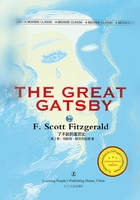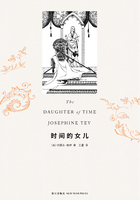THE LURE OF THE MATERIAL: BEAUTY SPEAKS FOR ITSELF
The true meaning of money yet remains to be popularly explained and comprehended. When each individual realizes for himself that this thing primarily stands for and should only be accepted as a moral due-that it should be paid out as honestly stored energy, and not as a usurped privilege-many of our social, religious, and political troubles will have permanently passed. As for Carrie, her understanding of the moral significance of money was the popular understanding, nothing more. The old definition: "Money: something everybody else has had and I must get," would have expressed her understanding of it thoroughly. Some of it she now held in her hand-two soft, green ten-dollar bills-and she felt that she was immensely better off for the having of them. It was something that was power in itself. One of her order of mind would have been content to be cast away upon a desire island with a bundle of money, and only the long strain of starvation would have taught her that in some cases it could have no value. Even then she would have had no conception of the relative value of the thing; her one thought would, undoubtedly, have concerned the pity of having so much power and the inability to use it.
The poor girl thrilled as she walked away from Drouet. She felt ashamed in part because she had been weak enough to take it, but her need was so dire, she was still glad. Now she would have a nice jacket! Now she would buy a nice pair button shoes. She would get stockings too, and skirts, and, and-until already, as in matter of her desires, twice the purchasing power of her bills. She conceived a true estimate of Drouet. To her, and indeed to all the world, he was a nice, good-hearted, as in the matter of her prospective salary, she had got beyond, in her desires, twice the purchasing power of her bills.
She conceived a true estimate of Drouet. To her, and indeed to all the world, he was a nice, good-hearted man. There was nothing evil in the fellow. He gave her the want. He would not have given the same amount to a poor young man, but we must not forget that a poor young man could not, in the nature of things, have appealed to him like a poor young girl. Femininity affected his feelings. He was the creature of an inborn desire. Yet no beggar could have caught his eye and said, " My God, mister, I'm starving," but he would gladly have handed out what was considered the proper portion to give beggars and though no more about it. There would have been no speculation, no philosophizing. He had no mental process in him worthy the dignity of either of those terms. In his good clothes and fine health, he was a merry, unthinking moth of the lamp. Deprived of his position, and struck by a few of the involved and baffling forces which sometimes play upon man, he would have been as helpless as Carrie-as helpless, as nonunderstanding, as pitiable, if you will, as she.
Now, in regard to his pursuit of women, he meant them no harm, because he did not conceive of the relation which he hoped to hold with them as being harmful. He loved to make advances to women, to have them succumb to his charms, not because his inborn desire urged him to that as a chief delight. He was vain, he was boastful, he was as deluded by fine clothes as any silly-headed girl. As truly deep-dyed villain could have hornswaggled him as readily as he could have flattered a pretty shop-girl. His fine success as a salesman lay in his geniality and the thoroughly reputable standing of his house. He bobbed about among men, a veritable bundle of enthusiasm-no power worthy the name of intellect, no thoughts worthy the adjectives noble, no feelings long continued in one strain. A Madame Sappho would have called him a pig; a Shakespeare would have said " my merry child;" old, drinking Caryoe thought him a clever, successful business man. In short, he was as good as his intellect conceived.
The best proof that there was something open and commendable about the man was the fact that Carrie took the money. No deep, sinister soul with ulterior motives could have given her fifteen cents under the guise of friendship. The unintellectual are not so helpless. Nature has taught the beasts of the field to fly when some, unheralded danger threatens. She has put into the small, unwise head of the chipmunk the untutored dear of poisons. " He keepeth His creatures whole," was not written of beasts alone. Carrie was unwise, and, therefore, like the sheep in its unwisdom, strong in feeling. The instinct of self-protection, strong in all such natures, was roused but feebly, if at all, by the overtures of Drouet.
When Carrie had gone, he felicitated himself upon her good opinion. By George, it was shame young girls had to be knocked around like that. Cold weather coming on and no clothes. Tough. He would go around to Fitzgerald and Moy's and get a cigar. It made him feel light of foot as he thought about her.
Carrie reached home in high good spirits, which she could scarcely conceal. The possession of the money involved a number of points which perplexed her seriously. He should she buy any clothes when Minnie knew that she had no money? She had no sooner entered the flat than this point was settled for her. It could not be done. She could think of no way of explaining.
"How did you come out?" asked Minnie, referring to the day.
Carrie had none of the small deception which could feel one thing and say something directly opposed. She would prevaricate, but it would be in the line of her feelings, at least. So instead of complaining when she felt so good, she said:
"I have the promise of something."
"Where?"
"At the Boston Store."
"Is it sure promised?" questioned Minnie.
"Well, I'm to find out to-morrow," returned Carrie disliked to draw out a lie any longer than was necessary.
Minnie felt the atmosphere of good feeling which Carrie brought with her. She felt now was the time to express to Carrie the state of Hanson's feeling about her entire Chicago venture.
"If you shouldn't get it—" she paused, troubled for an easy way.
"If I don't get something pretty soon, I think I'll go home."
Minnie saw her chance.
"Sven thinks it might be best for the winter, anyhow."
The situation flashed on Carrie at once. They were unwilling to keep her any longer, out of work. She did not blame Minnie, she did not blame Hanson very much. Now, as she sat there digesting the remark, she was glad she had Drouet's money.
"Yes," she said after a few moments, "I thought of doing that."
She did not explain that the though, however, had aroused all the antagonism of her nature. Columbia City, what was there for her? She knew its dull little round by heart. Here was the great, mysterious city which was still a magnet for her. What she had seen only suggested its possibilities. Now to turn back on it and live the little old life out there-she almost exclaimed against the thought.
She had reached home early and went in the front room to think. What could she do? She could not buy new shoes and wear them here. She would need to save part of the twenty to pay her fare home. She did not want to borrow of Minnie for that. And yet how could she explain where she even got that money? If she could only get enough to let her out easy.
She went over the tangle again and again. Here, in the morning, Drouet would expect to see her in a new jacket, and that couldn't be. The Hansons expected her to go home, and she wanted to get away, and yet she did not want to go home. In the light of the way they would look on her getting money without work, the taking of it now seemed dreadful. She began to be ashamed. The whole situation depressed her. It was all so clear when she was with Drouet. Now it was all so tangled, so hopeless-much worse than it was before, because she had the semblance of aid in her hand which she could not use.
Her spirits sank so that at supper Minnie felt that she must have had another hard day. Carrie finally decided that she would give the money back. It was wrong to take it. She would go down in the morning and hunt for work. At noon she would meet Drouet as agreed and tell him. At this decision her heart sank, until she was the old Carrie of distress.
Curiously, she could not hold the money in her hand without feeling some relief. Even after all her depressing conclusions, she could sweep away all thought about the matter and then the twenty dollars seemed a wonderful and delightful thing. Ah, money, money, money! What a thing it was to have. How plenty of it would clear away all these troubles.
In the morning she got up and started out a little early. Her decision to hunt for work was moderately strong, but the money in her pocket, after all her troubling over it, made the work question the least shade less terrible. She walked into the wholesale district, but as the thought of applying came with each passing concern, her heart shrank. What a coward she was, she thought to herself. Yet she had applied so often. It would be the same old story. She walked on and on, and finally did go into one place, with the old result. She came out feeling that luck was against her. It was no use.
Without much thinking, she reached Dearborn Street. Here was the great Fair store with its multitude of delivery wagons about, its long window display, its crowd of shoppers. It readily changed her thoughts, she who was so weary of them. It was here that she had intended to come and get her new things. Now for relief from distress; she thought she would go in and see. She would look at the jackets.
There is nothing in this world more delightful than that middle state in which we mentally balance at times, possessed of the means, lured by desire, and yet deterred by conscience or what of decision. When Carrie began wandering around the store amid the fine displays she was in this mood. Her original experience in this same place had given her a high opinion of its merits. Now she paused at each individual bit of finery, where before she had hurried on. Her woman's heart was warm with desire for them. How would she look in this, how charming that would make her! She came upon the corset counter and pauses in rich reverie as she noted the dainty concoctions of color and lace their displayed. If she would only make up her mind, she could have one or those now. She lingered in the jewelry department. She saw the earrings, the bracelets, the pins, the chains. What would she not have given if she could have had them all! She would look fine too, if only she had some of these things.
The jackets were the greatest attraction. When she entered the store, she already had her heart fixed upon the peculiar little tan jacket with large mother-of-pearl buttons which was all the rage that fall. Still she delighted to convince herself that there was nothing she would like better. She went about among the glass cases and racks where these things were displayed, and satisfied herself that the one she thought of was the proper one. All the time she wavered in mind, now persuading herself that she could buy it right away if she chose, now recalling to herself the actual condition. At last the noon hour was dangerously near, and she had done nothing. She must go now and return the money.
Drouet was on the corner when she came up.
"Hello," he said, "where is the jacket and"—looking down-"the shoes?"
Carrie had thought lead up to her decision in some intelligent way, but this swept the whole fore-schemed situation by the board.
"I came to tell you that-that I can't take the money."
"Oh, that's it, is it?" he returned. "Well, you come on with me. Let's go over here to Partridge's."
Carrie walked with him. Behold, the whole fabric of doubt and impossibility had slipped from her mind. She could not get at the points that were so serious, the things she was going to make plain to him.
"Have you had lunch yet? Of course you haven't. Let's go in here," and Drouet turned into one of the very nicely furnished restaurants off State Street, in Monroe.
"I mustn't take money," said Carrie, after they were settled in a cozy corner, and Drouet had ordered the lunch. "I can't wear those things out there. They wouldn't know where I got them."
"What do you want to do," he smiled, "go without them?"
"I think I'll go home," she said, wearily.
"Oh, come," he said, "you've been thinking it over too long. I'll tell you what you do. You rent a furnished room and leave them in that for a week?"
Carrie shook her head. Like all women, she was there to object and be convinced. It was for him to brush the doubts away and clear the path if he could.
"Why are you going home?" he asked.
"Oh, I can't get anything here."
"They won't keep you?" he remarked, intuitively.
"They can't" said Carrie.
"I'll tell you what you do," he said. " You come with me. I'll take care of you."
Carrie heard this passively. The peculiar state which she was in made it sound like the welcome breath of an open door. Drouet seemed of her own spirit and pleasing. He was clean, handsome, well-dressed, and sympathetic. His voice was the voice of a friend.
"What can you do back at Columbia City?" he went on, rousing by the words in Carrie's mind a picture of the dull world she had left. "There isn't anything down there. Chicago's the place. You can get a nice room."
Carrie looked out through the window into the busy street. There it was, the admirable, great city, so fine sing pair of bays, passed by, carrying in its upholstered depths a young lady.
"What will you have if you go back?" asked Drouet. There was no subtle undercurrent to the question. He imagined that she would have nothing at all of the things he thought worth while.
Carrie sat still, looking out. She was wondering what she could do. They would be expecting her to go home this week.
Drouet turned to the subject of the clothes she was going to buy.
"Why not get yourself a nice little jacket? You've got to have it. I'll loan you the money. You needn't worry about taking it. You can get yourself a nice room by yourself. I won't hurt you."
Carrie saw the drift, but could not express her thoughts. She felt more than ever the helplessness of her case.
"If I could only get something to do," she said.
"Maybe you can," went on Drouet, "if you stay here. You can't if you go away. They won't let you stay out there. Now, why not let me get you a nice room? I won't bother you needn't be afraid. Then, when you get fixed up, maybe you could get something."
He looked at her pretty face and vivified his mental resources. She was a sweet little mortal to him-there was no doubt of that. She seemed to have some power back of her actions. She was not like the common run of store-girls. She wasn't silly.
In reality, Carrie had more imagination than he-more taste. It was a finer mental strain in her that made possible her depression and loneliness. Her poor clothes were neat, and she held her head unconsciously in a dainty way.
"Do you think I could get something?" she asked.
"Sure," he said, reaching over and filling her cup with tea. "I'll help you."
She looked at him, and he laughed reassuringly.
"Now I'll tell you what we'll do. We'll go over her to Partridge's and you pick out what you want. The we'll look around for a room for you. You can leave the things there. Then we'll go to the show to-night."
Carrie shook her head.
"We'll, you can go out to the flat them, that's all right You don't need to stay in the room. Just take it and leave your things there."
She hung in doubt about this until the dinner was over.
"Let's go over and look at the jackets," he said.
Together they went. In the store they found that shine and rustle of new things which immediately laid hold of Carrie's heart. Under the influence of a good dinner and Drouet's radiating presence, the scheme proposed seemed feasible. She looked about and picked a jacket like the one which she had admired at The Fair. When she got it in her hand it seemed so much nicer. The saleswoman helped her on with it, and, by accident it fitted perfectly. Drouet's face lightened as he saw the improvement. She looked quite smart.
"That's the thing," he said.
Carrie turned before the glass. She could not help feeling pleased as she looked at herself. A warm glow crept into her cheeks.
"That's the thing," said Drouet. "Now pay for it."
"It's nine dollar," said Carrie.
"That's all right-take it," said Drouet.
She reached in her purse and took out one of the bills. The woman asked if she would wear the coat and went off. In a few minutes she was back and the purchase was closed.
From Partridge's they went to a shoe store, where Carrie was fitted for shoes. Drouet stood by, and when he saw how nice they looked, said, " Wear them." Carrie shook her head, however. She was thinking of running to the flat. He brought her a purse for one thing and a pair of gloves for another, and let her buy the stockings.
"To-morrow," he said, " you come down here and buy yourself a skirt."
In all of Carrie's actions there was a touch of misgiving. The deeper she sank into the entanglement, the more she imagined that the thing hung upon the few remaining things she had not done. Since she had not done these, there was a way out.
Drouet knew a place in Wabash Avenue where there were rooms. He showed Carrie the outside of these, and said: "Now, you're my sister." He carried to the selection looking around, criticizing, opining. "Her trunk will be here in a day or so," he observed to the landlady, who was very pleased.
When they went alone, Drouet did not change in the least. He talked in the same general way as if they were out in the street. Carrie left her things.
"Now," said Drouet, "why don't you move to-night?"
"Oh, I can't," said Carrie.
"Why not?"
"I don't want to leave them so."
He took that up as they walked along the avenue. It was a warm afternoon. The sun had come out and the wind had died down. As he talked with Carrie, he secured an accurate detail of the atmosphere of the flat.
"Come out of it," he said, "they won't care. I'll help you get along."
She listened until her misgiving vanished. He would show her about a little and then help her get something. He really imagined that he would. He would be out on the road and she could be working.
"Now, I'll tell you what you do," you go out there and get whatever you want and come away."
She though a long time about this. Finally she agreed. He would come out as far as Peoria Street and wait for her. She was to meet him at half-past eight. At half-past five she reached home, and at six her determination was hardened.
"So you didn't get it?" said Minnie, referring to Carrie's story of the Boston Store.
Carrie looked at her out of the corner of her eye. "No," she answered.
"I don't think you'd better try any more this fall," said Minnie.
Carrie said nothing.
When Hanson came home he wore the same inscrutable demeanor. He washed in silence and went off to read his paper. At dinner Carrie felt a little nervous. The strain of her own plans was considerable, and the feeling that she was not welcome here was strong.
"Didn't find anything, eh?" said Hanson.
"No."
He turned to his eating again, the though that it was a burden to have her here dwelling in his mind. She would have to go home, that was all. Once she was away, there would be no more coming back in the spring
Carrie was afraid of what she was going to do, but she was relieved to know that this condition was ending. They would not care. Hanson particularly would be glad when she went. He would not care what became of her.
After dinner she went into the bathroom, where they could not disturb her, and wrote a little note.
"Good-bye, Minnie," it read. "I'm not going home. I'm going to stay in Chicago a little while and look for work. Don't worry. I'll be all right."
In the front room Hanson was reading his paper. As usual, she helped Minnie clear away the dishes and straighten up. Then she:
"I guess I'll stand down at the door a little while." She could scarcely prevent her voice from trembling.
Minnie remembered Hanson's remonstrance.
"Sven doesn't think it looks good to stand down there," she said.
"Doesn't he?" said Carrie. "I won't do it any more after this."
She put on her hat and fidgeted around the table in the little bedroom, wondering where to slip the note. Finally she put it under Minnie's hair-brush.
When she had closed the hall-door, she paused a moment and wondered what they would think. Some thought of the queerness of her deed affected her. She went slowly down the stairs. She looked back up the lighted step, and then affected to stroll up the street. When she reached the corner she quickened her pace.
As she was hurrying away, Hanson came back to his wife.
"Is Carrie down at the door again?" he asked.
"Yes, said Minnie; "she said she wasn't going to do it any more." He went over to the baby where it was playing on the floor and began to poke his finger at it. Drouet was on the corner waiting, in good spirits. "Hello, Carrie," he said, as a sprightly figure of a girl drew near him. "Got here safe, did you? Well, we'll take a car."















